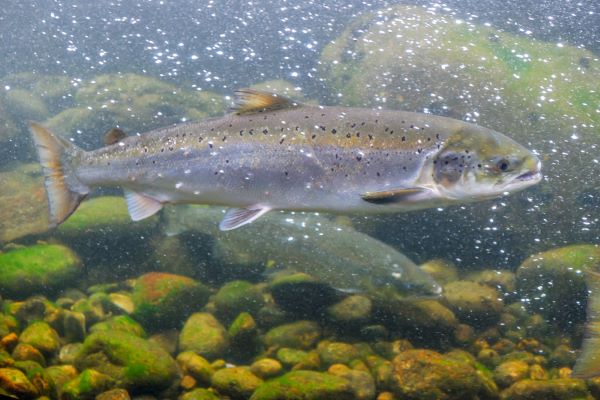
Genomic epidemiological determination of routes of pathogenic virus transmission between farmed salmon
Viruses in farmed salmon harm the UK's economy, decrease industry sustainability, and reduce fish welfare. Piscine myocarditis virus (PMCV) and infectious salmon anaemia virus (ISAV) are particularly damaging. This project aims to improve understanding of how these viruses spread between farms, and hence inform actions that can improve disease control and reduce disease incidence.

Challenge
This research addresses an urgent need to reduce virus spread amongst farmed salmon. Disease and death of farmed salmon increases the environmental footprint of production, reduces fish welfare, and increases costs for consumers. Two viruses, called piscine myocarditis virus (PMCV) and infectious salmon anaemia virus (ISAV) are particularly damaging.
Protection against new disease outbreaks remains critical as salmon production expands to meet growing global demand. Despite the severe problems caused by these viruses, transmission between farms, countries, or different generations of fish is not fully understood. We are using virus genomic sequencing and genomic analyses to improve understanding of disease transmission.
Solution
Fish are moved between farms as they grow; from egg and progeny in tanks, to inland freshwater sites as juveniles, and finally to the sea at adulthood. By reconstructing virus transmission processes using virus genomes, we will investigate whether viruses tend to circulate within the same production stage, or move easily between production stages. We will also investigate whether farms are more likely to frequently share viruses if they use certain practices, such sharing of equipment with other farms. By revealing how these viruses spread, the project aims to equip fish producers and aquaculture policy-makers with information that can contribute to design of new practices that help reduce disease amongst farmed salmon.
Partners
The project establishes a new collaboration between Dr Sarah Hill at the Royal Veterinary College, the Institute of Marine Research in Norway, PHARMAQ (the global commercial leader in vaccines and innovation for aquaculture health), and the Institute of Marine Research in Norway and is benefitting from samples and data shared by Marine Scotland. The project is funded by the BBSRC.
